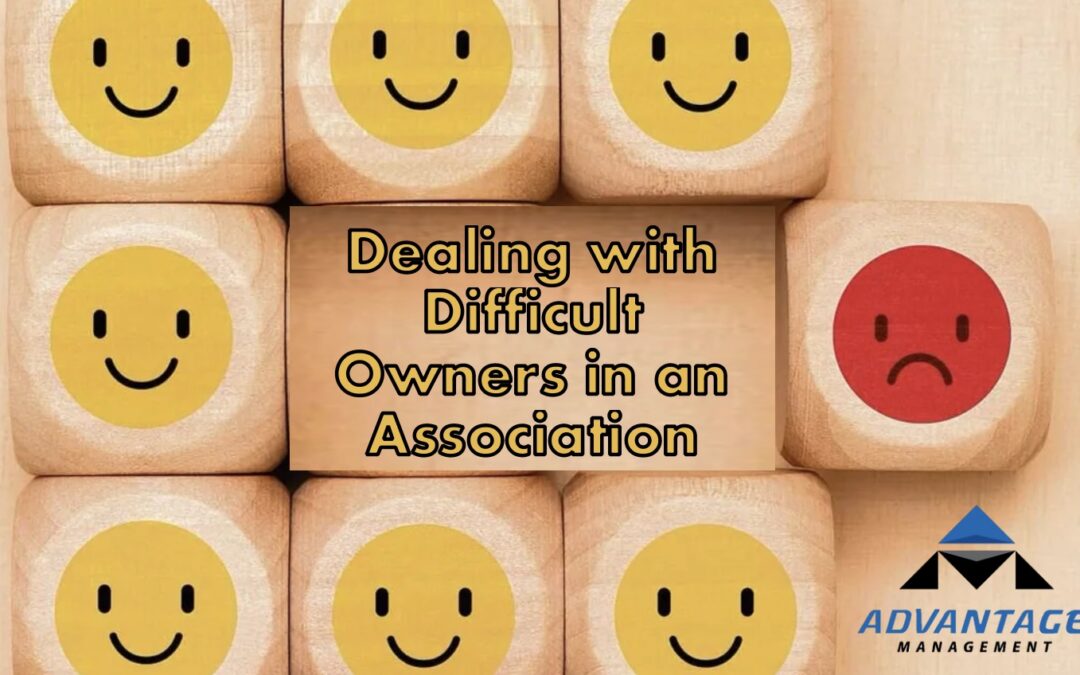Living in a community can offer many benefits, such as shared amenities and a sense of community. However, associations come with their own set of challenges, particularly when dealing with difficult owners. Whether it’s disagreements over rules and regulations, or disruptive behavior, addressing these issues requires a delicate balance of assertiveness, diplomacy, and adherence to established procedures.
Community Associations consist of diverse individuals with varying personalities, priorities, and expectations. Conflicts can arise due to differing interpretations of bylaws, personal conflicts, or simply a lack of communication.
Consistency is crucial when enforcing rules and regulations within an association. All owners should be held to the same standards, regardless of their status or tenure within the community. When addressing violations or disruptive behavior, it’s important to approach each situation objectively and follow established protocols outlined in the association’s governing documents.
What are the unit owner’s steps to make a complaint? All complaints must be in writing to management and include details, including date, time, and description, along with the exact unit/homeowner causing the issue. Keep a log if the issue recurs. To make a stronger case, witnesses can provide audio or video recordings of unreasonable noise. If the complaint results in a fine, the unit that caused the issue is entitled to a hearing in front of the board in an executive session to contest the violation and fine. The person who submitted the claim would be required to attend as a witness.
Once management receives a complaint, the next steps are for the manager and the board of directors to discuss the enforcement of the rules and regulations. If the violation is valid, a warning letter would be sent, or possible fines if this is a repeat offense. If the warnings and/or repeated fines have not resolved the issue, a possible next step would be to file a lawsuit against the unit if applicable.
In some cases, disputes within an association may escalate to the point where legal intervention is necessary. Whether it’s enforcing compliance with governing documents or resolving disputes through mediation or arbitration, seeking legal guidance from a qualified attorney specializing in community association law can provide valuable insight and guidance.
Dealing with difficult owners in an association requires patience, diplomacy, and a commitment to upholding the principles of fairness and accountability. By establishing clear communication channels, enforcing rules consistently, seeking legal guidance when necessary, and fostering a culture of respect and cooperation, associations can effectively address conflicts and promote harmony within the community. With proactive management and a focus on conflict resolution, associations can navigate challenges and create a thriving living environment for all residents.


Recent Comments